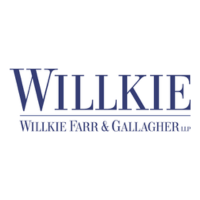

General counsel | The Chicago Community Trust



Amy J. Peña
General counsel | The Chicago Community Trust
Spotlight On… The Balancing Act of a General Counsel
When I think about the work of a general counsel in the nonprofit and philanthropic sector, the main goals are to help an organisation operate efficiently and expand its capacity while ensuring compliance with public charity regulations. The challenge is often a balancing act: how do you enable an organisation to be innovative, while also managing organisational risks associated with that innovation?
I was the first general counsel for The Chicago Community Trust, a 108-year-old community foundation that works to address the Chicago region’s evolving needs. In 2019, the trust decided on a strategic direction to close the racial and ethnic wealth gap – a gap in wealth accumulation between white households and Black and Latinx households that affects everything from life expectancy to education outcomes to community safety. Decades of systemic policies and practices like redlining prevented households of color from building generational wealth. If the trust wanted to create deeper impact, we needed to go beyond our grant making approach and develop a policy and advocacy function.
I was responsible for ensuring that we could build a transformative policy agenda while maintaining the necessary guardrails in place to protect the organisation’s integrity. To effect change with a policy agenda, we would need to engage in lobbying, attempting to influence legislation that would create the necessary conditions for Black and Latinx families to build wealth. However, general lobbying regulations state that a public charity may not devote a substantial part of its activities to lobbying, meaning we had to be intentional about what activities we could engage in.
First, we had to build an educational framework for staff. Policy and advocacy involve a wide range of activities. To ensure compliance, everyone had to have the same level of understanding of what was and wasn’t considered lobbying, as well as what were the appropriate activities they could engage in.
Next, we developed a process for determining when the trust would engage in lobbying. We had to ask ourselves how important particular policy issue(s) were to our agenda. How did the current landscape affect the type of legislation being passed? What was our likelihood of success? Where would we see the most pushback? And most importantly how do we determine which areas to engage in when there is a limited amount of time we can legally engage in lobbying activities.
As this was a new function of the organisation, it was imperative that our executive committee (EC) was aligned with this direction. From the beginning, the EC was brought along throughout the whole process. In addition to ongoing engagement, we added a governance structure that would allow the trust to lean on the guidance of our EC to help us decide policy priorities and activities that would advance our work.
Throughout this process, we learned early on to seek the expertise of practitioners outside of the organisation who had done this work before. We also learned that consistency with communication and clarity around guidelines made the implementation process a lot easier. Most importantly, we reminded ourselves that as we built out this new function and seek to deepen our impact, our starting point should always be the mission and integrity of the organisation.
General counsel | The Chicago Community Trust